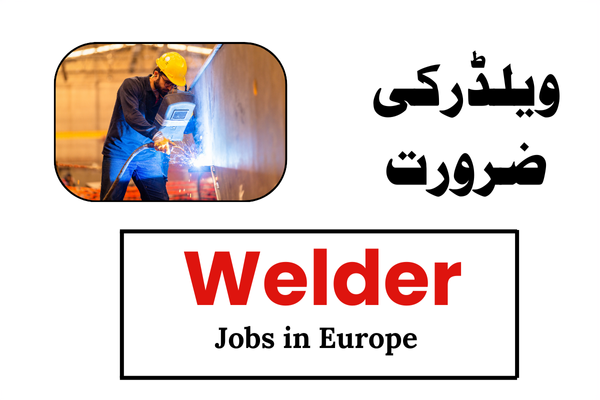The demand for skilled welders in Europe is high, with industries such as construction, shipbuilding, automotive, and manufacturing actively seeking qualified professionals. Welding jobs in Europe offer competitive salaries, career growth opportunities, and the chance to work in diverse environments. This article explores job roles, salaries, requirements, and career prospects for welders in Europe.
Job Roles and Responsibilities
1. MIG/TIG Welder
- Performing Metal Inert Gas (MIG) and Tungsten Inert Gas (TIG) welding
- Working with stainless steel, aluminum, and other metals
- Ensuring strong and precise welds for industrial applications
2. Arc Welder
- Using shielded metal arc welding (SMAW) techniques
- Welding steel structures, pipes, and heavy machinery
- Inspecting welds for quality and durability
3. Pipe Welder
- Welding and assembling pipes for oil, gas, and water industries
- Ensuring leak-proof and structurally sound pipe connections
- Reading and interpreting blueprints for pipe layouts
4. Structural Welder
- Welding metal frameworks for buildings, bridges, and infrastructure
- Following safety guidelines and construction plans
- Working on high-rise projects and large-scale structures
Salary Expectations in Europe
Salaries for welders vary based on experience, location, and employer. Below are approximate wage ranges in different European countries:
- Germany: €2,500 – €4,500 per month
- France: €2,000 – €3,800 per month
- United Kingdom: £12 – £25 per hour
- Netherlands: €2,400 – €4,200 per month
- Norway: NOK 30,000 – NOK 50,000 per month
Additional Benefits
- Overtime pay and bonuses
- Health insurance and pension contributions
- Paid holidays and sick leave
- Relocation assistance and work permit sponsorships
Requirements for Welding Jobs in Europe
1. Educational Qualifications
- No formal degree required, but vocational training in welding is preferred
- Certifications such as AWS (American Welding Society), CSWIP, or ISO 9606 are highly valued
2. Experience and Skills
- Prior experience in welding, fabrication, or metalworking
- Ability to read blueprints and technical drawings
- Knowledge of different welding techniques (MIG, TIG, ARC, etc.)
- Strong attention to detail and safety compliance
3. Work Visa and Documents
- Valid passport
- Work visa or EU Blue Card (for non-EU workers)
- Welding certifications and proof of experience
- Medical fitness certificate
How to Apply
- Online job portals: Indeed, EuroJobs, EURES, LinkedIn
- European construction and manufacturing companies
- Recruitment agencies specializing in skilled labor
- Direct applications to welding firms and contractors
Career Growth and Opportunities
With experience and further certifications, welders can progress to higher roles such as:
- Welding Inspector or Supervisor
- Certified Welding Engineer
- Manufacturing or Pipeline Specialist
- Self-Employed Welding Contractor
Conclusion
Welding jobs in Europe provide excellent career prospects, attractive salaries, and opportunities for professional development. Skilled welders are in high demand across industries, making it a lucrative field for those with the right qualifications and expertise.
